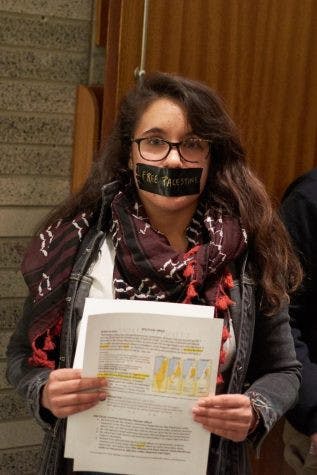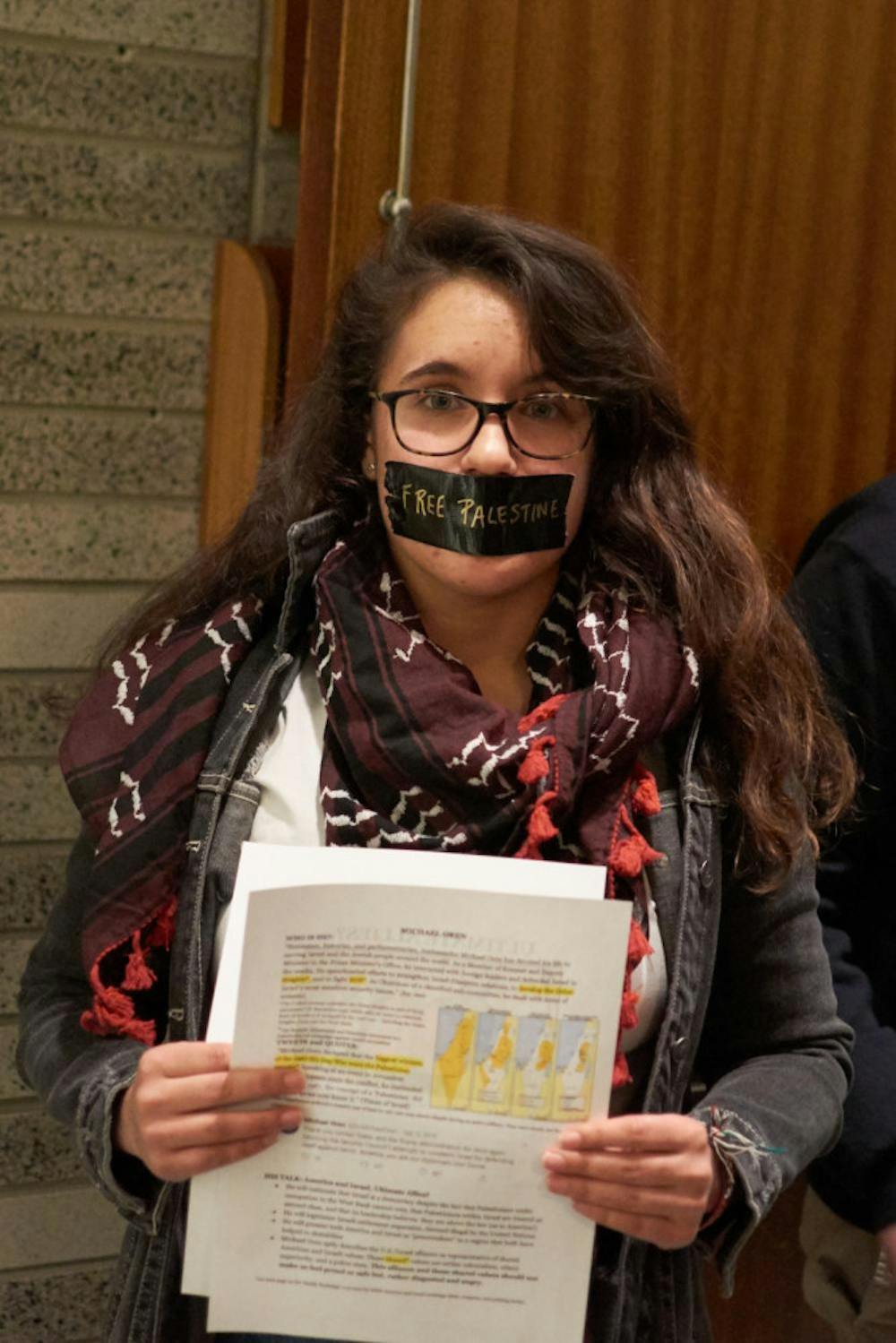Michael Oren, former Israeli ambassador to the United States, spoke about the multifaceted alliance between the United States and Israel on Monday in Dana Auditorium. The talk, entitled “Ultimate Allies: America & Israel, 1620 to the present,” was hosted by the Alexander Hamilton Forum. Student protesters confronted Oren with prepared questions following his lecture.
Oren outlined four pillars that defined what he called the “deepest and most multifaceted alliance” between Israel and the U.S. The first pillar is the countries’ spiritual connection, which is reflected in America’s religiosity and empathy towards Israel.
“America was and remains the most religiously observant country in the industrialized world,” Oren said. “More people in this country go to a church, and those people read the same Bible, and they see the same promises that God made to the Jewish people. They make conclusions about them and it has a profound impact.”
The second pillar, he said, is the democratic connection. He emphasized Israel’s founding as a Jewish state with democratic values in common with America’s, describing a multi-partied Israeli political system with less polarization and more female government representation than in the United States.
He also admitted that Israel has a volatile and unpredictable government that shares some of the same problems that plague all democratic states.
The third pillar he described is the strategic alliance between the two nations. Today, the U.S. and Israel share some of the most sophisticated military intelligence, joint maneuvers and cyber cooperation in the world.
The final pillar is Israeli technology. Israel houses 550 high-tech corporations, including branches of American companies.
“To say that this relationship is free from tensions and disagreement would be very misleading,” Oren said. “It is a profound disagreement, a philosophical and tactical disagreement.” He listed disagreements such as the final disposition of the West Bank, the status of Jerusalem and the criticisms of excessive forces used in treating the Gaza Strip.
He said another source of tension is that young people from the two nations differ in their political trajectories.
“Generally speaking, Israel as a society has become egregiously more observant every week, it is more conservative, it is younger,” Oren said. “Whereas the United States is going a different way.”

Marisa Edmondson ’20 was among student protesters. A piece of tape over her mouth reads “Free Palestine.”
Tension was evident during the question and answer portion of the event, when student protestors confronted Oren with prepared questions. Protesters handed out supplementary materials prior to the talk and several students put tape over their mouths that said “Free Palestine.” Some of the same students staged a silent protest against Ishmael Khaldi, Israel’s first Bedouin diplomat and a former soldier in the Israeli Defense Force, in November.
Cara Levine ’20 organized the protest, which she said was prompted by remarks Oren had made on Twitter and in news reports articles on Palestine.
“I chose to protest the Michael Oren event not because I wanted to silence him, but to point to the way in which him and people like him silence others, especially Palestinians but also Jews who don’t agree with him,” Levine said. “This [Israeli-American] alliance and these shared values should not make us feel proud or safe but, rather disgusted and angry.”
One of the student protesters, Marisa Edmondson ’20, said that the group’s mission is to shed light on the plight of Palestinian people. Edmondson found Oren’s talk to be one-sided, neglecting Israel’s humanitarian abuses against Palestinians. She hoped that her protest would combat this narrative.
“We wanted to engage in that uncomfortable dialogue, but unfortunately we felt like he did not actually answer a lot of the questions that we asked,” Edmondson said. “I hope that people in the room were able to sense that there is more to the story than what he is telling about Palestinian human rights. We wanted to bring that to the center stage.”
In response to the group’s questions, Oren highlighted the parts of Israeli life that extend beyond political conflict and urged students to visit Jerusalem.
One student in the audience expressed discomfort towards Israeli militarization, and questioned Oren on Israeli patriotism under these circumstances.
“I’d rather protect my family than to make you feel better,” Oren responded. “We focus on the rockets because that’s in the news, but Israeli life is so much more vibrant than that.”
Middlebury professor Zohar Gazit, an Israel Institute Teaching Fellow currently teaching a class on contemporary Israel, attended the event. Gazit said he found the talk informative to his class, but disagreed with Oren on the Palestine issue. Gazit was surprised by Oren’s emphasis on the religious connection between America and Israel.
“One thing I try to convey to my students, and what I did not like in the lecture, was the dichotomy he presented between the Israeli and Palestinian identities,” Gazit said. “The way I see it, you’re not either pro-Israel or pro-Palestine. The solution is to disengage from this dichotomy. You can claim your Israeli identity and still want Palestinians to be free, have claim to their land, and have basic human rights.”
Overall, Gazit said the talk was academic and respectful.
“What I really liked was that people were asking tough questions and receiving answers. I don’t know if they liked the answers, but from what I experienced, it was a good atmosphere, and it wasn’t hostile,” Gazit said.
Talk by former Israeli ambassador met with protest

EMMANUEL TAMRAT
Former Israeli Ambassador to the U.S. Michael Oren addresses Dana Auditorium to talk about the American-Israeli alliance.
Former Israeli Ambassador to the U.S. Michael Oren addresses Dana Auditorium to talk about the American-Israeli alliance.
EMMANUEL TAMRAT
Comments



